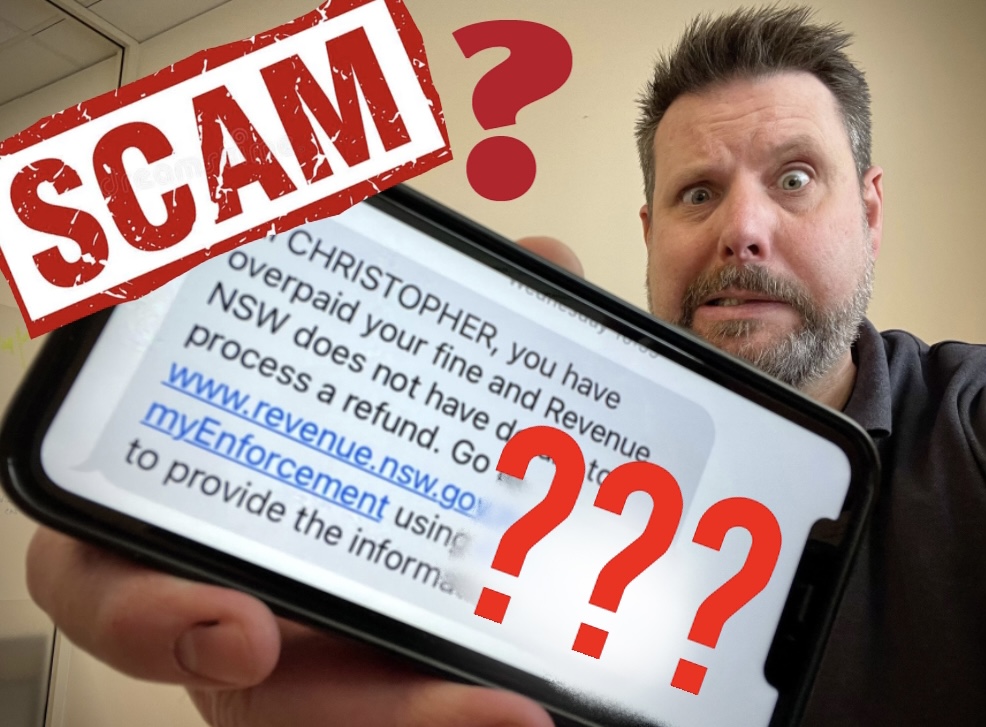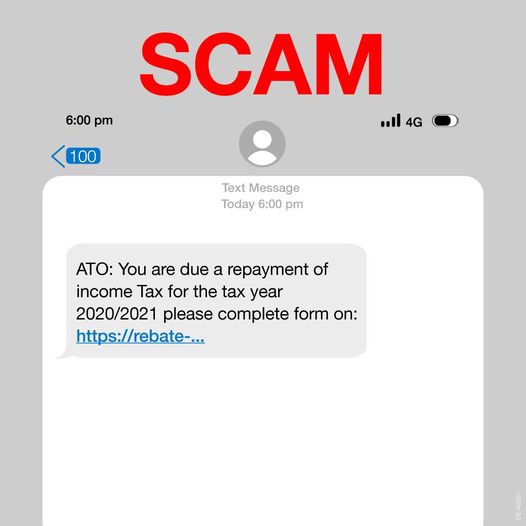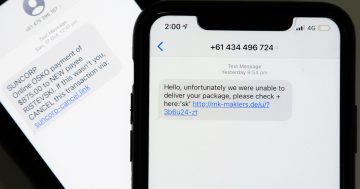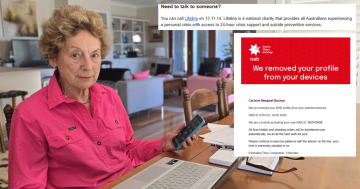
Scam or legit? It can be hard to tell, so you’re better off playing it safe. Photo: Chris Roe.
Year in Review: Region Media is revisiting some of the best Opinion articles of 2022. Here’s what got you talking, got you angry and got you thinking in 2022. Today, Chris Roe takes a look at scams.
These SMS scammers really are getting sneaky.
Usually, when I get a text warning of a ”tax audit” or “security breach” at my bank, I push past the first moment of panic and quietly delete the message, confident in the knowledge that, if it was serious, my highly efficient wife would sort it out.
Easy, scam avoided.
But I confess, I received a text this week that kept me guessing.
“HI CHRISTOPHER, you have overpaid your fine and Revenue NSW does not have the details to process a refund,” read the message.
I had spent two hours on the phone with Revenue NSW the previous day to reverse the suspension of my licence over an unpaid parking fine.
(It turns out some warning emails shouldn’t be ignored!)
I was in a rush as I glanced at the phone and half read the message.
They had my name, the web address looked legit, I was unhappy about the fines I had paid and this SMS was offering a refund – so without thinking it through, I clicked it.
Instantly I regretted it.
As the page opened, the full address was revealed and included a line of suspicious numbers ahead of the more familiar revenuensw.nsw.gov.au.
I quickly closed it with some sense of embarrassment.
Scam!
Or was it?
How did they get my name?
I decided it was time to go to the brains trust.
Inspector Jill Gibson from Riverina Police said it had the look of a standard ”phishing attack” and dozens of Aussies were hooked every day.
“Imagine if you sent out 10,000 texts related to paying Revenue NSW – at least 100 people would have paid something in the last 24 hours,” she explained.
“So there’s 100 people that might click on that link.”
In fact, Australians have lost almost $5 million to phishing so far in 2022 and a total of more than $295 million in reported scams.
“Because it’s just past the end of the financial year, there’s a lot of text messages about the ATO and your tax files, or getting your tax back and things like that,” Inspector Gibson said.
“And even people who haven’t submitted a tax return start to feel worried when they get it.”
Inspector Gibson said it was important to be open about encounters with scammers and to have conversations with older family members who could be confused.
“They play on people’s emotions and make them feel that they’re going to do something wrong,” she said.
“But the truth is that you’re not doing something wrong and if you’re worried, you should contact your bank or the ATO or whoever, directly.”

The ATO is warning of scam text messages about tax refunds. Photo: ATO.
Earlier this month, a new code was introduced by the Australian Communications and Media Authority to force mobile phone companies to crack down on scam texts.
Providers could face up to $250,000 in fines for failing to comply.
A similar code for phone calls was introduced in December 2020 and telcos have blocked almost 550 million scam calls since its launch.
Launching the new code, ACMA chair Nerida O’Loughlin said SMS scams could have devastating financial and emotional impacts on victims.
”These scam messages are deeply frustrating to Australians because they are received on devices that are an essential part of our social and economic lives,” she said.
“We shouldn’t have to screen messages and adopt workaround behaviours to be able to feel safe and stay connected.”
Inspector Gibson said reporting a potential scam early helped to nip it in the bud and could also untangle some of the financial implications.
“If you think that something’s happened, you can always contact the police assistance line on 131 444 and report it,” she said.
“That way, if your identity has been stolen, or something happens in the future, then you have an event number which you can give to the bank or your insurance company.”
But she said the best thing to do if you receive a call or SMS you are unsure about is to delete it or hang up.
“If you’re not sure, get a name, hang up and ring whoever they claim to be on the number that is widely provided, not the one they have provided you in the message or on the phone.”
With this advice in mind, I returned to my suspicious text message.
The fact that it opened with “CHRISTOPHER” – a name used only by my mother and the government – made me decide to follow up further.
Much to my surprise, it turned out to be legit!
But thanks to Inspector Gibson, I went about it the right way and contacted Revenue NSW directly via phone.
If you think you’ve been scammed, contact your bank and phone company immediately and report it.
The ACCC’s scamwatch site provides the latest information and you can also report anything you think is a scam.
If you’ve had personal details stolen, IDCARE is the place to go.
















